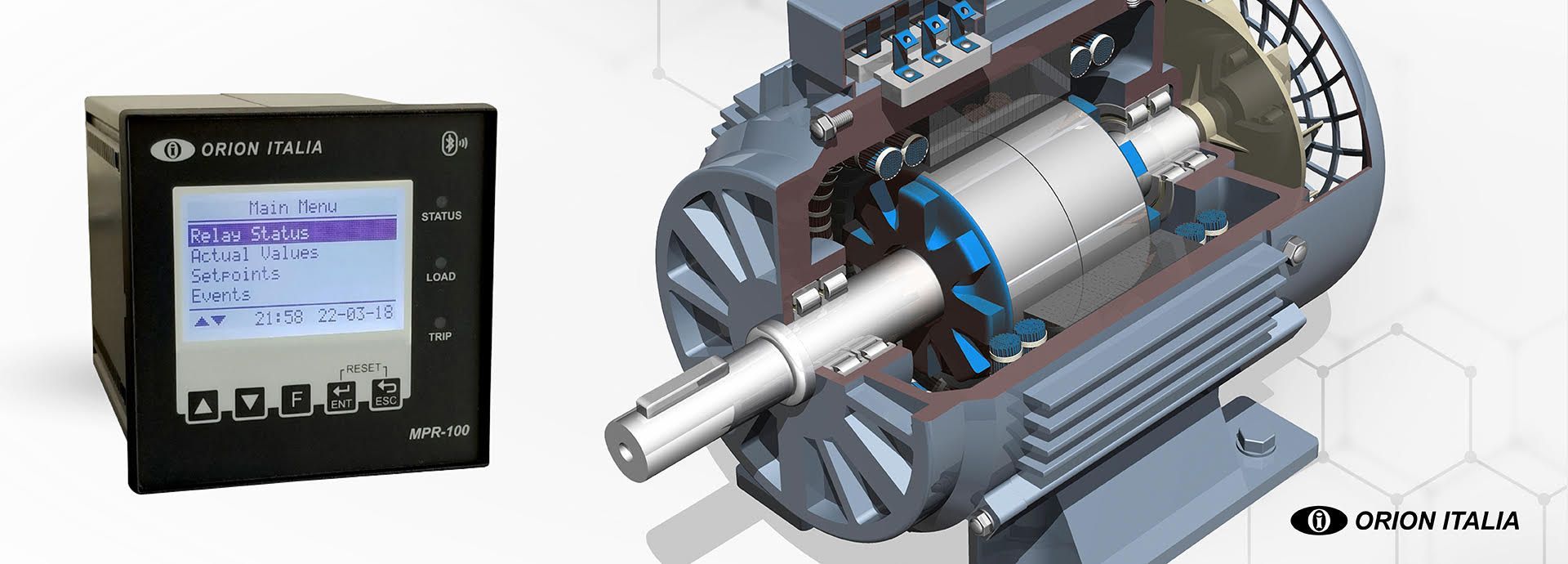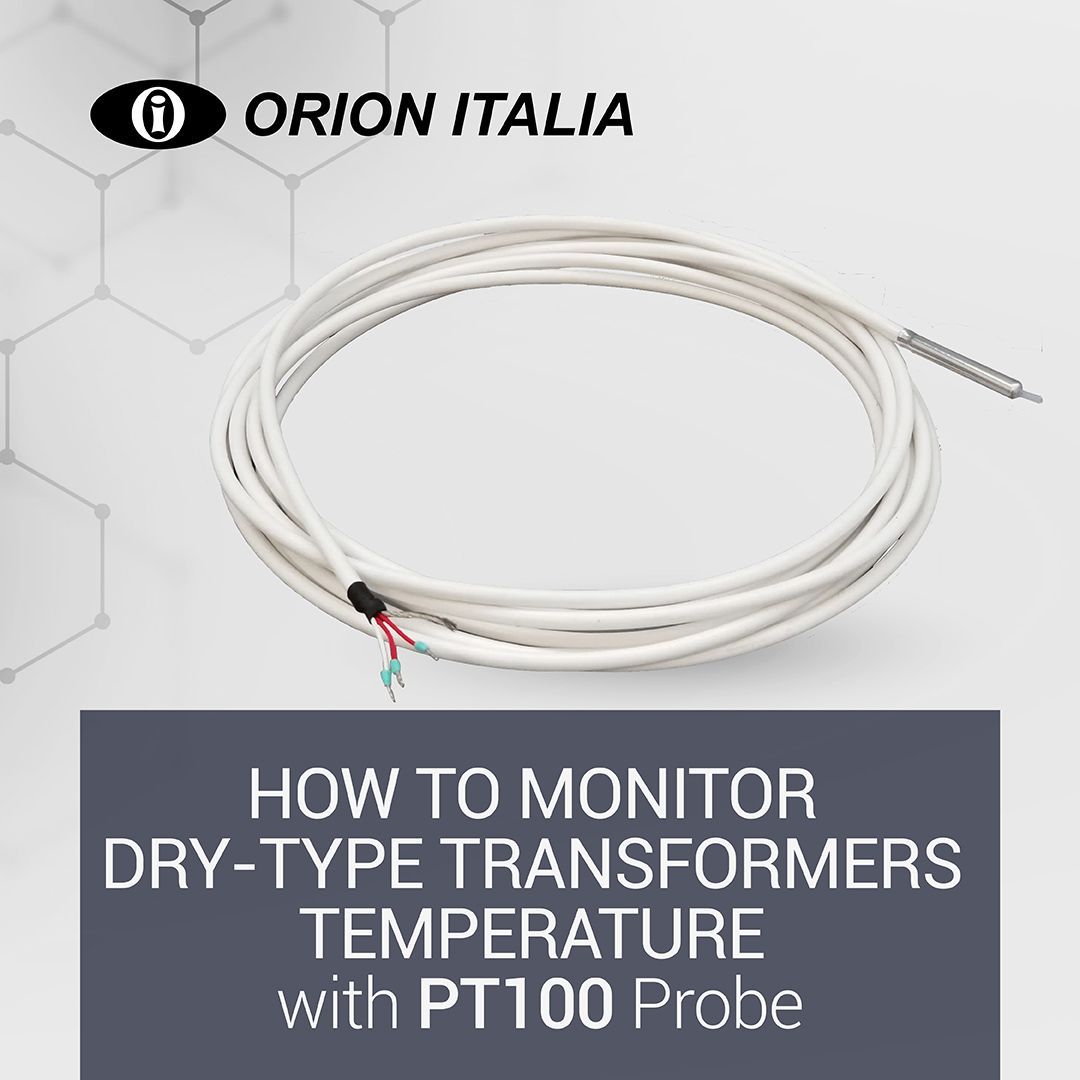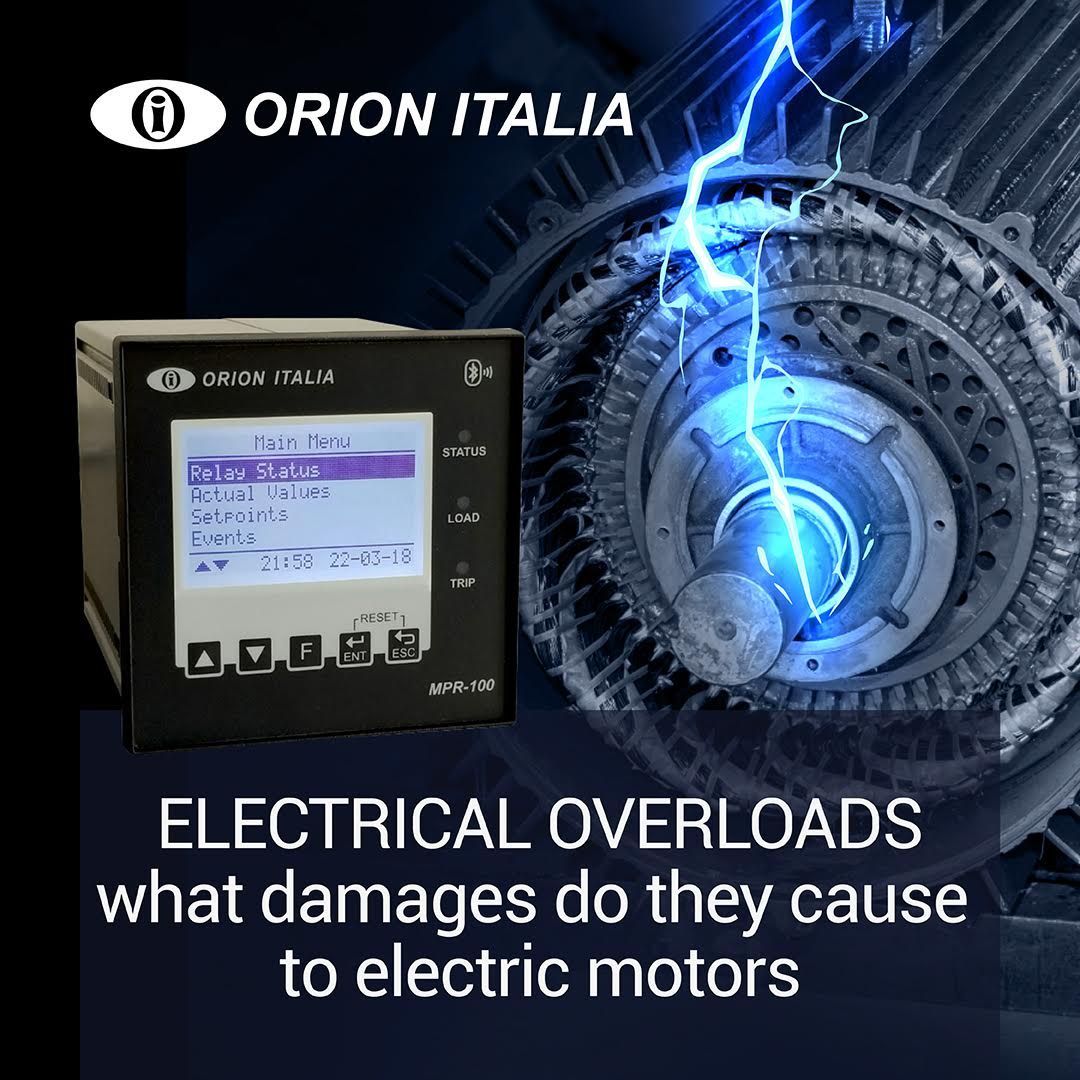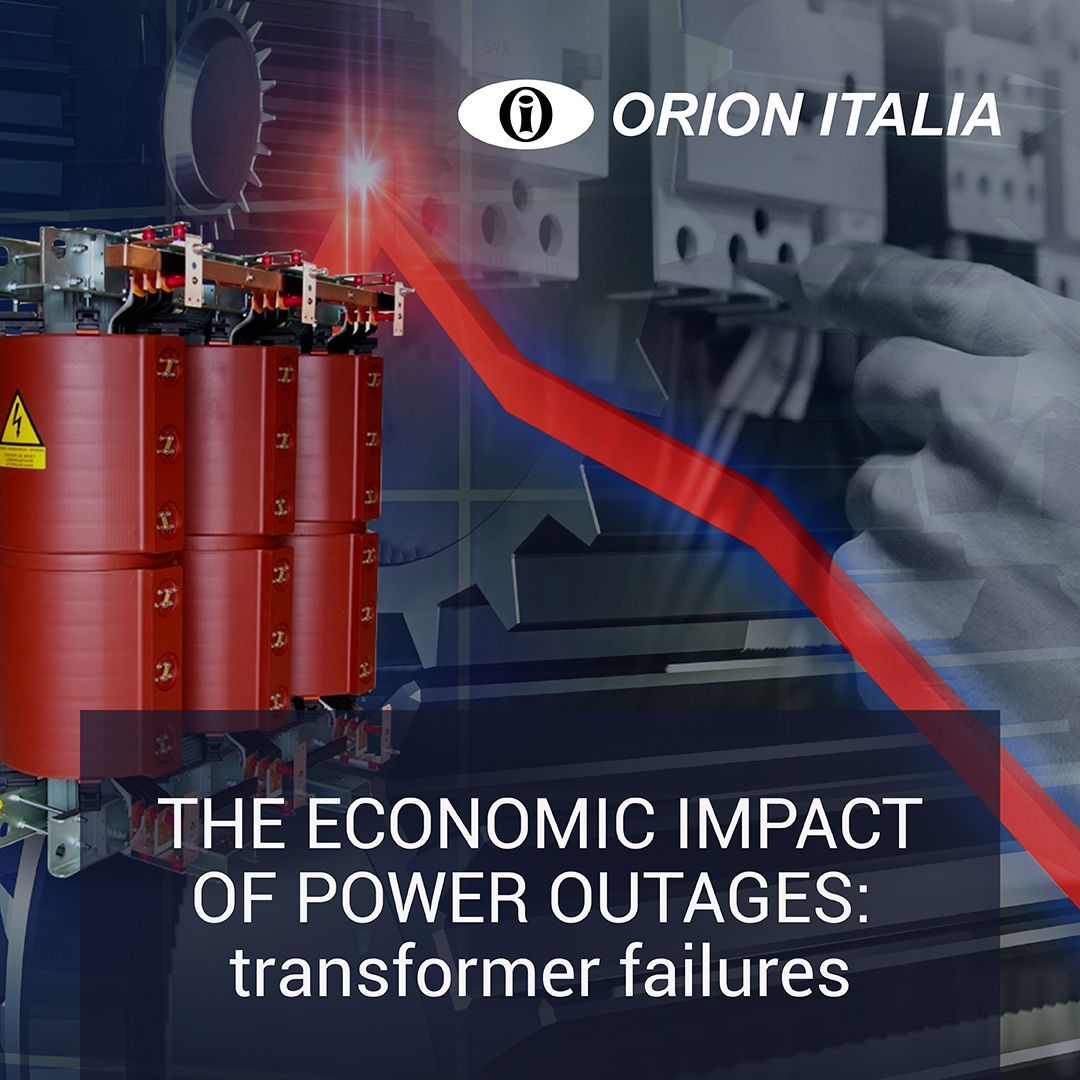Blog

How protective relays prevent electric motor failures
Three-phase asynchronous electric motors that operate in complex environments, such as industrial ones, are subject to conditions that can affect their efficiency.
Our
protective relays detect the main anomalies thanks to constant monitoring of the data supplied by the electric motor.
Which risks threaten electric motor durability and performance?
Voltage Surge - Damage to motor Windings
Voltage surges can cause spikes that exceed the insulation capacity of the motor windings, causing short circuits or electrical interruptions. It is crucial for the integrity of electric motors to maintain voltage within the parameters for which they were designed.
Electrical Overloads
Electrical overloads transpire when electric motors receive current beyond what they are engineered to handle, which can be triggered by an unexpected surge in power demand or control system defects. This excess current leads to a significant temperature rise within the motor, heightening the risk of thermal harm to the windings and other vital internal mechanisms.
When a motor is subjected to a load that surpasses its anticipated operating capacity, it is forced to function outside its optimal efficiency range. This scenario can further amplify the motor's temperature, potentially impacting its performance and shortening its expected lifespan.
Find out more in our article "What Damage Do Current Overloads Cause in Asynchronous Three-Phase Motors?"
Mechanical Damage
Motor components can wear out due to continual use, leading to mechanical failures such as worn bearings, broken gear teeth, or coupling issues.
Excessive vibrations can result from an imbalance in the rotor, incorrect mounting, bearing wear, or poor alignment with the load. These vibrations can cause damage to the bearings and other mechanical components, shortening the motor’s lifespan.
Proper lubrication and operation within recommended hours are essential to maintain the integrity of the bearings and ensure the motor's operability.
Corrosion
Exposure to humid or corrosive environments can damage the metal parts of the motor, especially if they are not adequately protected or if the protection has deteriorated over time.
Overheating
Overheating can be caused by overloads, continuous operation beyond its rated capacity, poor ventilation, operation in environments with high temperatures, or an accumulation of dust and dirt that impedes proper heat dissipation.
Environmental Contamination
Environmental contaminants such as dust, dirt, and various particulates can infiltrate electric motors, impairing their performance and reliability. Accumulation of such debris not only affects the internal components directly but also hampers the motor's ability to dissipate heat effectively.
Moisture and Motor Seals
In the case of submerged pumps, the ingress of water and moisture can be detrimental to the electric motor. Ensuring the integrity of the seals to protect against moisture is crucial.
Voltage Variations
Voltage unbalance in three-phase motors can result in inconsistent performance and potential overheating due to uneven load distribution across the phases. Such asymmetry in the voltage can lead to thermal stress and mechanical strain on motor components.
Voltage Spikes and Dips & spikes, although sometimes transient, can inflict gradual or immediate damage to a motor's insulation, compromising its operational integrity and may harm the electronic components governing the motors, like variable speed drives..
Start/Stop Cycles
Frequent starting and stopping of a motor can increase wear on mechanical components and contribute to electrical stresses and temperature increase.
Inadequate Maintenance
Lack of maintenance can lead to a variety of issues, from the accumulation of dirt to undetected wear of critical components. It is vital to tighten motor base nuts, secure the screws of electrical connections, and perform external cleaning of the motor to facilitate better heat dissipation.
Malfunctioning Control Electronics
Current overloads can damage the control electronics components and speed regulators associated with the electric motors of machine tools, reducing process performance.
Can protective relay prevent faults of a Three-Phase Motor? Discover MPR100
Maintaining the resilience and efficiency of a three-phase motor hinges on robust protection. Orion Italia's MPR100 protection relay has been meticulously engineered to fulfill different needs, delivering a sophisticated monitoring and safeguarding system for your motor.
How does our protective relay work?
Monitoring and problem detecting
This state-of-the-art relay goes beyond mere current monitoring to identify overload conditions; it also vigilantly oversees the motor load to safeguard against conditions of underload, which can be just as detrimental to certain process types or water pumps.
Furthermore, the MPR100 boasts the capability to detect voltage unbalances, a critical feature since voltage discrepancies can precipitate abnormal motor operation and additional heat generation, which current measurements alone may overlook. By leveraging this data, the MPR100 constructs an accurate thermal model of the motor, enabling it to offer superior protection by accounting for these fluctuating conditions.
Automated actions
Upon detecting any irregularities, the MPR100 swiftly intervenes to either remove the electrical supply or trigger alarms. This proactive approach mitigates the risk of overheating, winding insulation damage, and other potential mechanical or electrical complications.
Why choose our protection relay?
Explore the comprehensive protection offered by the MPR100 and see how it can bolster operational dependability, curb maintenance expenses, and prolong the service life of your equipment. With its dynamic protection adjustments and dedication to motor safety, the MPR100 is a prudent investment for the conscientious management of your facility's assets.
SHARE THIS ARTICLE
Discover More














